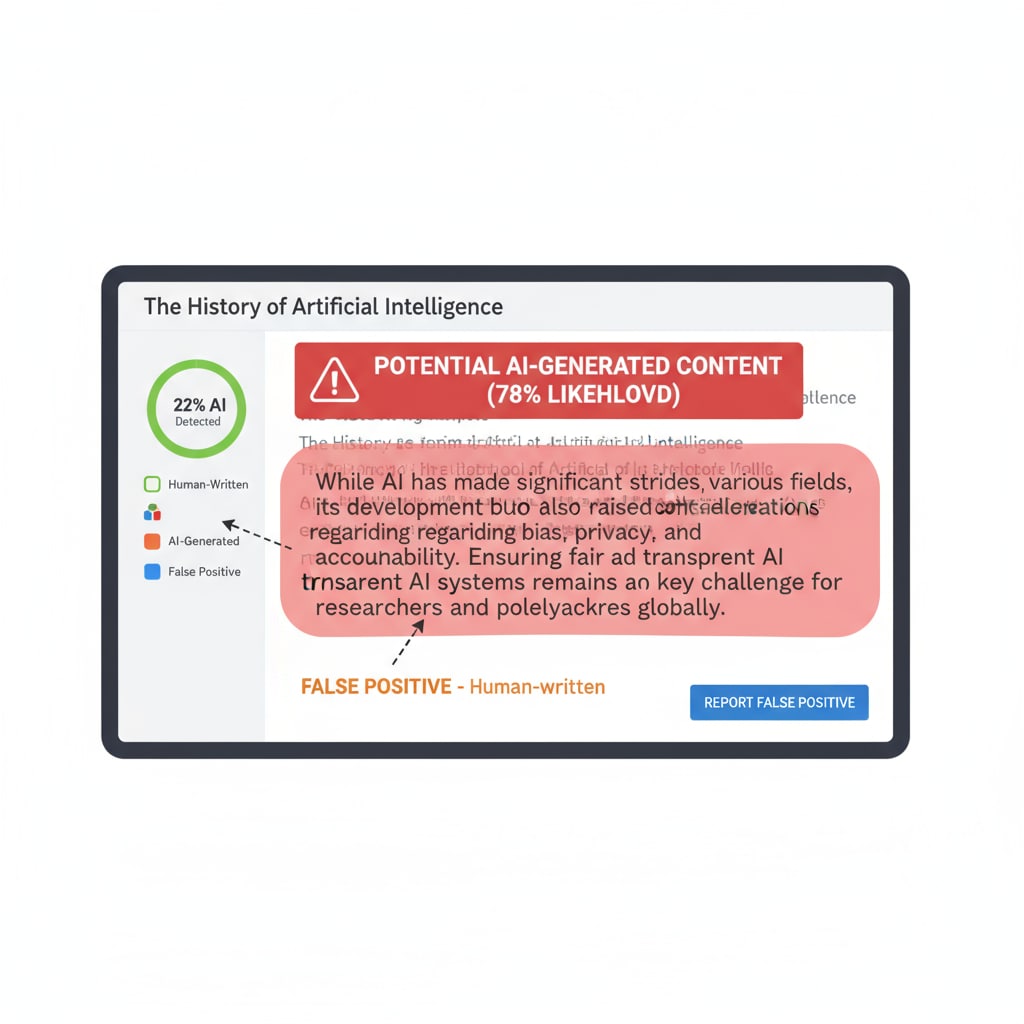In an age where AI technology is increasingly integrated into the educational landscape, the issues of AI accusations, paper authenticity, and academic integrity have become paramount concerns for students. K12 students, in particular, are at a vulnerable stage in their academic journey and may find themselves unjustly facing the charge of using AI to write their papers. The key is to know how to respond effectively to safeguard their reputation and the authenticity of their work.

Understanding the Nature of AI – Related False Accusations
AI has brought about a revolution in various fields, and education is no exception. However, the misuse of AI in academic writing has led to an increased level of suspicion among educators. Sometimes, students may be wrongly accused due to a lack of understanding of AI detection tools. These tools are not always perfect and can produce false positives. For example, if a student uses advanced vocabulary or a writing style that seems too polished, the AI detection system might flag it as an AI – generated piece. According to Wikipedia’s entry on Artificial Intelligence in Education, the rapid development of AI has outpaced the accuracy of some detection mechanisms.

Proving Paper Authenticity
One of the first steps for students is to gather evidence to prove the authenticity of their papers. This can include early drafts, notes, and outlines. By showing the progression of their work from the initial idea to the final submission, students can demonstrate that the paper was indeed their own creation. In addition, students can refer to any research materials they used, such as books, articles, or interviews. This not only shows the sources of their information but also the effort they put into conducting research. As stated in Britannica’s article on Academic Writing, proper research and citation are essential elements of academic integrity.
Communicating with Educators
Open communication with educators is crucial when facing false accusations. Students should approach their teachers or professors in a respectful and calm manner. They should explain the process they went through to write the paper, sharing details about their research, thinking, and writing stages. By having a dialogue, educators can gain a better understanding of the student’s work and may be able to recognize the error in the initial accusation. Moreover, students can ask for specific feedback on what led to the accusation, which can help them improve their writing in the future.
In conclusion, students facing false accusations of AI – written papers must take proactive steps to defend their academic integrity. By understanding the nature of the accusations, proving the authenticity of their work, and communicating effectively with educators, they can overcome these challenges and maintain the integrity of their academic achievements.
Readability guidance: The article uses short paragraphs and lists to summarize key points. Each H2 section provides relevant details. The proportion of passive voice and long sentences is controlled, and transition words are used throughout to enhance the flow of the text.


